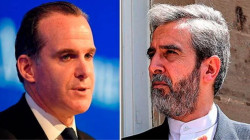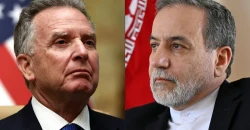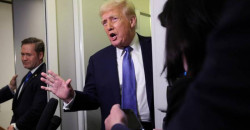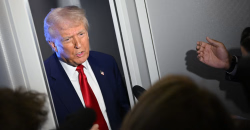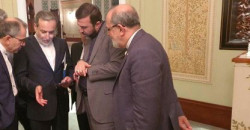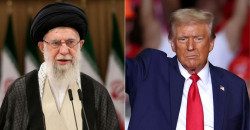US-Iran talks in Muscat under Mideast shadow
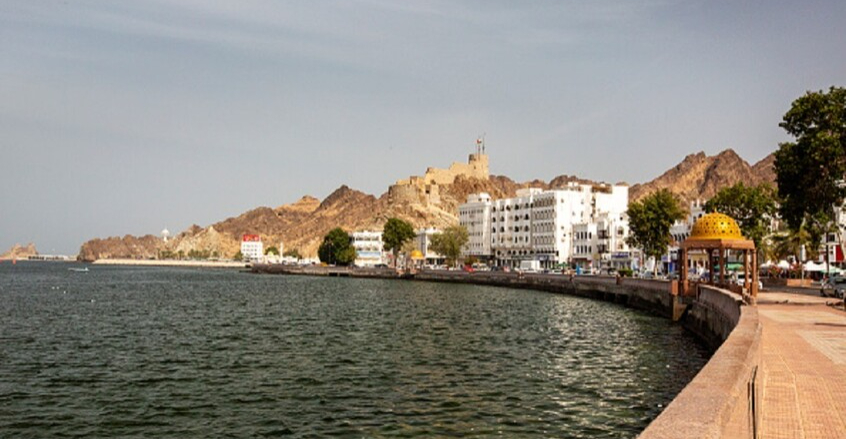
Shafaq News/ Senior Iranian and US officials are set to begin high-level talks in Oman on Saturday to revive negotiations over Tehran’s accelerating nuclear program, as regional tensions continue to escalate and Washington signals possible military action if diplomacy fails.
The talks will mark the highest-level engagement between the two countries since Donald Trump withdrew from the 2015 nuclear agreement in 2018. Trump, who returned to office earlier this year, has reiterated his opposition to a nuclear-armed Iran and described the Oman meetings as “important,” telling reporters aboard Air Force One that while he hoped for a “prosperous and great” Iran, the country must not obtain nuclear weapons.
While both sides have expressed cautious optimism, key differences remain over the format and substance of the talks. Trump has insisted on direct negotiations, while Iran prefers indirect engagement through intermediaries.
According to analysts close to the matter, progress could help ease tensions in a region strained by ongoing conflicts in Gaza and Lebanon, cross-border strikes between Iran and Israel, Houthi attacks on Red Sea shipping lanes, and political upheaval in Syria. But failure could further destabilize the region and heighten fears of open conflict, particularly given Tehran’s warnings to neighboring states hosting US military bases that they would face “severe consequences” if involved in any American strike on Iran. Trump, meanwhile, has warned Iran it would face “hell” if no agreement is reached.
Iranian officials said Supreme Leader Ayatollah Ali Khamenei has given Foreign Minister Abbas Araghchi full authority to lead the negotiations, while US Middle East envoy Steve Witkoff is set to lead the American side. A report by Axios said National Security Council senior official Eric Trager and nuclear experts from the US State Department will also participate in the discussions. The first round is expected to begin indirectly but could shift to direct talks if initial exchanges are positive, according to a source cited by Axios.
Witkoff has conveyed that the US seeks a diplomatic resolution while ensuring Iran cannot obtain nuclear weapons. He told the Wall Street Journal that Washington’s red line remains to prevent Iran from developing a nuclear bomb and that dismantling Tehran’s nuclear program is a key demand. If Iran refuses, the issue will be referred to Trump for further action.
Iran has described the Oman talks as a “realopportunity” and pledged to engage seriously and constructively. Ali Shamkhani, a top adviser to the Supreme Leader, said Aragchi holds full authority for the indirect talks and that Tehran is seeking a “genuine and fair” deal. He noted that Iran has put forward practical proposals and that the path to a resolution would be “clear and smooth” if the US enters the talks with sincerity.
Tehran also insists its nuclear activities are solely for peaceful purposes, but Western nations argue that its uranium enrichment has exceeded civilian needs. Enrichment levels have reached 60%, approaching weapons-grade material.
US Secretary of State Marco Rubio said Thursday that the administration hoped the talks would pave the way for peace, but reiterated that Iran would never be allowed to acquire a nuclear weapon. Tehran responded by offering the US a “genuine chance,” while accusing Washington of maintaining a confrontational stance.
Israel, a close US ally, continues to view Iran’s nuclear ambitions as an existential threat and has warned it would act militarily if diplomacy fails.
Analysts say Iran enters the talks under pressure, with its regional influence diminished in recent months following the collapse of Bashar al-Assad’s government in Syria and the weakening of its allied network — including Hamas in Gaza, Hezbollah in Lebanon, the Houthis in Yemen, and various Shiite groups in Iraq and Syria. However, others argue that Iran's military capabilities and its warnings to US bases in the region could strengthen its negotiating position.
